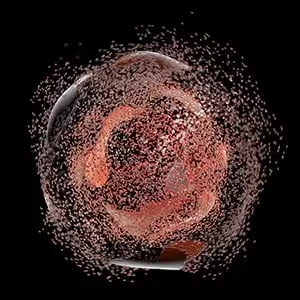
Breaking down a cell’s protective membrane exposes precious intracellular contents. These proteins, organelles, and other such molecules provide researchers with a wealth of information about how the organism functions in both healthy and disease states. The process of cell rupture, most commonly accomplished through homogenization, requires optimization for high product yield. Although many homogenizer brands exist on the market, only some allow their users the autonomy of customization. Keep reading to learn about how custom homogenizer options can help you optimize your cell lysis technique.
Many Cell Types Can Be Accommodated
The difference in lysis process between cell types stems largely from whether or not there is a cell wall present. Bacterial, yeast/fungal, and plant cells have a tough cell wall that requires significant force to disrupt. In contrast, only a membrane separates mammalian intracellular contents from the extracellular environment. Mammalian cells thus require a more gentle method of disruption. Homogenizers that provide customization, such as in pressure and intensity, allow the user to adjust these factors for the cell type being used. If today you were lysing a human fetal cell and tomorrow an onion root tip cell, a customizable homogenizer would allow you to maximize product yield in both.
Scalable to Larger Sample Sizes
You are probably all-too-familiar with the high costs associated with science, particularly in the research and development stage of product development. Scalability ensures that you can invest in a project with full confidence that it won’t outgrow its original system, measured in terms of both cost and time efficiency. Custom homogenizer options allow the user to optimize a technique and then progress to a larger sample size while continually optimizing and attaining high product yield.
Unique Applications Can Be Achieved
Regardless of the intended application for your cell lysis product, a customizable homogenizer will be able to accommodate it. This allows for a much more diverse equipment functionality, which will probably help you feel that the money you spent on that pricey homogenizer was well-directed. Some examples of adjustable forces include shear, cavitation, process intensity, and turbulence.
BEE Homogenizers: Quality Cell Lysis Equipment
Use of flexible cell lysis equipment will provide numerous benefits for both production laboratories and consumers alike. And there are plenty of companies on the market to select your equipment from. However, the lysate can be of higher quality and more even consistency when run through top-shelf equipment, most frequently in the form of a homogenizer. Pion is trusted by researchers around the world for both their laboratory homogenizers and their associated customer support. Cell lysis is just one of a variety of applications for BEE brand homogenizers; nano/micro emulsions, lipids, suspensions, and dispersions are also easily achievable. Additionally, the homogenizer processes can be controlled to suit your product, which will allow you to customize to your cell type. And finally, the equipment is easy to use, produces higher yield in less time, and achieves results that are reproducible and scalable.

